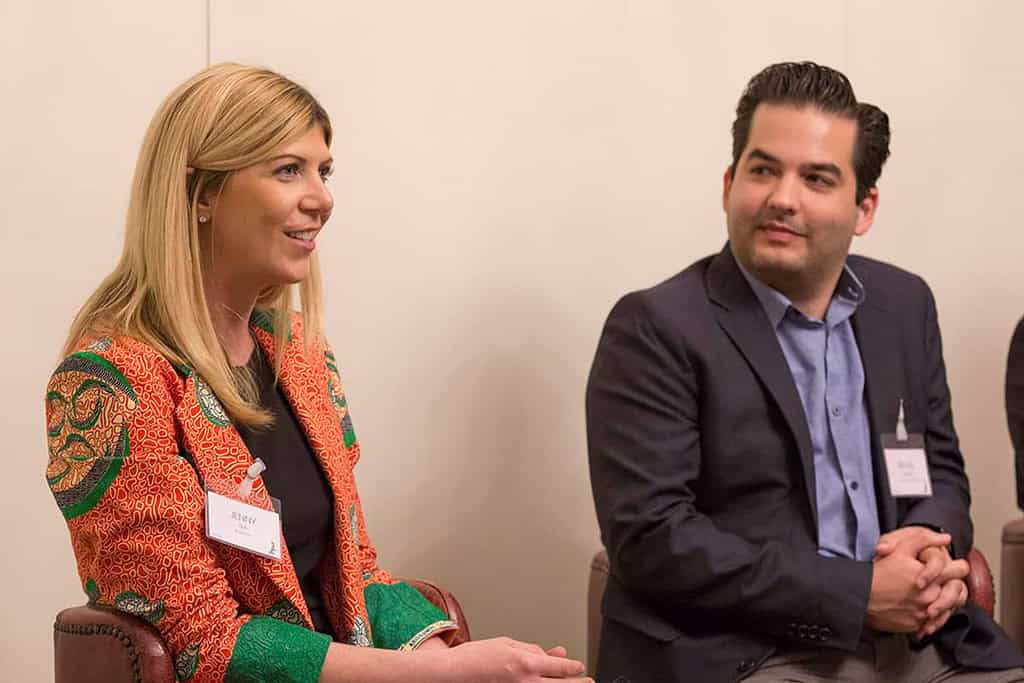Skills Partnerships: Start with Listening
- Blog

The relationship between the social sector and the corporate world is complex. Skills Partnerships have emerged as a way of engaging both sectors. This form of engagement may have started with activities like leveraging a corporation’s expansive workforce to build a house for the homeless or help underprivileged students with their resumes, but it has since evolved to include highly skilled workers sharing their expertise with all types of organizations.
On paper, leveraging the expertise and resources of the private sector to catalyze the social sector—a sector known to be underresourced—but it’s always different in practice. The nuance of the structure of these partnerships was the focus for Acumen’s Beyond Dialogue Workshop, which brought to light important conversations around different types of partnerships.
During the workshop held at Oxford, Jon Shepard, Director of EY’s Enterprise Growth Services shared his journey of building this function within a corporation. “I was driven by the need I saw to fill a gap in the market and work with social entrepreneurs innovating to solve the world’s biggest challenges,” he said, “as well as the desire I see from EY employees to get involved and support these true legacy builders.”
Willem Nolens, CEO of Acumen investee Solar Now, also shared how his experience working with EY triggered a review of company values and resulted in new incentive structures and compensation packages. He talked about how catalytic this type of consultation can be and how important it is for corporate partners to understand the commitment required to work with a social enterprise. “Our companies are moving, iterating, learning as fast as we can to survive, to grow,” he said. “The people who work with us need to understand the level of resources we have and the weight of each of our actions. People who come in knowing this, as EY did, are better equipped to add value for us.”
Jeff Dykstra, CEO of Partners in Food Solutions, shared how his consortium works, bringing employees of leading global food companies with entrepreneurs, by turning the conversation to two of its partners, Ian Roberts, CTO of Bühler, and Pauline Gaceri, Managing Director of Sopa Supplies. Bühler, a Swiss technology company, helped Sopa, a maize and flour processing company from Nairobi, improve its operations. “Sopa Supplies is on a new trajectory now,” Pauline said. “We received direction on everything from food processing to cleanliness to how to improve production and keep standards. We are accomplishing more and more each day.” It wasn’t just Sopa that was impacted; Roberts shared how important these engagements are for Bühler employees to to learn and understand where innovation is happening, gain new skills, and bring this knowledge back into their roles.
To round out the discussion, Doug Galen, CEO of RippleWorks, a San Francisco organization that focuses on bridging the gap between the needs of social entrepreneurs and the expertise of corporate partners, talked about the challenges of sourcing talent to sustain growth as enterprises scale. Galen shared a number of solutions he has seen work, and it is Rippleworks’s success in matchmaking social entrepreneurs with corporate experts that demonstrates the tremendous opportunity these partnerships can hold when designed with both parties’ needs in mind.
If social enterprises can be specific when laying out their needs and corporations can match the demand and understand the commitment required to be a true partner, there is real potential with Skills Partnerships. As corporations increasingly embed social and environmental impact into their ethos, skills partnerships provide a powerful way to bring real value to both kinds of companies.
Avery Loise Bang is CEO of Bridges to Prosperity and an MBA Candidate at Oxford’s Saïd Business School.